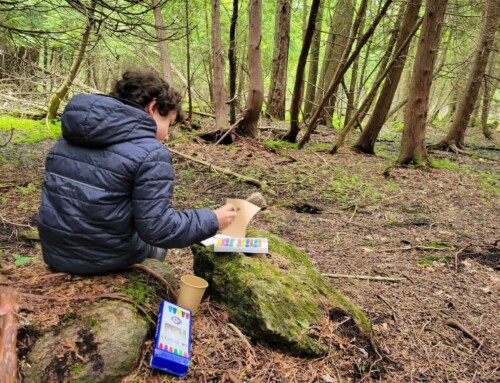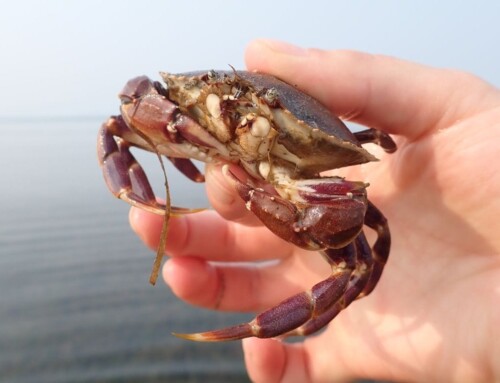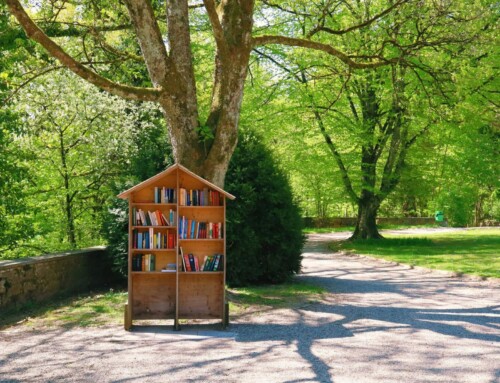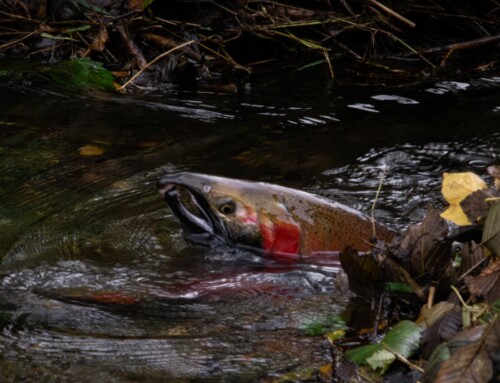Brooksdale interns Elise Huculiak (right) and Melanie Moore (left) set out to monitor Salish Suckers in the Little Campbell watershed (photo: RRMiller Photography).
Leah Kostamo, A Rocha Canada co-founder, recently sat down with Elise to chat about the significance of her conservation work and her participation in A Rocha’s Salish Sucker surveys.
To give you a bit of context into Elise’s work, it’s important to understand the significance of her study area: The Little Campbell River. As one of the last remaining undyked rivers within the lower Fraser Valley of BC, the Little Campbell River is truly a natural jewel of the region. It is home to regionally-significant populations of salmon, trout, and a high diversity of wildlife, including several endangered species. The river was named one of BC’s most endangered rivers back in 2008 because of increasing development in the watershed and concerns about water quality.
The Little Campbell River flows directly through A Rocha’s Brooksdale Environmental Centre, allowing our staff and interns ready access for species survey and habitat restoration projects. During one particular species surveys back in 2011 an intern discovered a fish thought to have disappeared from the watershed.
The fish in question – a Salish Sucker (Catostomus sp.) — is an endangered species, listed under Canada’s Species at Risk Act, and found in only eleven watersheds in the Fraser Valley and at least four in Washington State. Since its rediscovery A Rocha staff and a steady stream (pun intended!) of interns have studied its distribution throughout the watershed and have accomplished a number of restoration projects to enhance its habitat.
Elise Huculiak is the latest of Brooksdale’s conservation interns to study the Salish Sucker. A graduate of UNBC in Outdoor Recreation and Conservation, Elise is thrilled put her training into practice.

Salish Sucker (Photo: Andrew Baylis)
During one of the most recent surveys, Elise and Andrew Baylis (Conservation Science Coordinator) pulled 2 juvenile and 4 adult Salish Suckers in their monitoring trap (and returned those fish safely and unharmed back to the river after recording them!).
In reflecting on her participation in the Sucker surveys, Elise said, “It’s exciting to be part of a real conservation project that is on-going. In university the projects just last 3 months and then they’re over. We can make plans and suggestions based on our research, but they’re not necessarily implemented.”
When asked why the Salish Sucker is such an exciting fish, Elise responded, “Actually, it’s not that glamorous of a fish to look at, but it’s the fact that there are so few remaining. People might not notice if they’re gone, but species don’t live independently. If the Salish Sucker disappears because of degraded habitat then other species will follow. All things exist in relationship to everything else.”
In this regard, Elise referenced Aldo Leopold’s words:
“The last word in ignorance is the man who says of an animal or plant, “What good is it?” If the land mechanism as a whole is good, then every part is good, whether we understand it or not. If the biota, in the course of aeons, has built something we like but do not understand, then who but a fool would discard seemingly useless parts? To keep every cog and wheel is the first precaution of intelligent tinkering.”

Photo: RRMiller Photography
Musing on this theme and about how she’s coming to understand creation more holistically, Elise said, “Doing field work is such a privilege. Paddling in the kayaks, dropping our traps for fish surveys, I’m so present to what’s around me. That presence leads to awareness that I’m part of something bigger – bigger than just individual parts or species.”
We are grateful for interns like Elise who help A Rocha make a difference, not just for one species, but for a whole watershed. And we’re deeply encouraged by our interns’ experiences of transformation as they practically care for creation.







